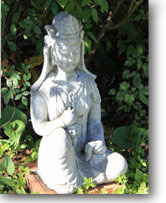More FAQs
- What is Bowenwork?
- Is Bowenwork gentle?
- What is Bowenwork good for?
- What happens in a Bowenwork session?
- How many sessions are needed?
- What should I wear for my Bowenwork session?
- What should I expect in a Bowenwork session?
- What should I expect after my session?
- Homework?
- What is a detoxification reaction?
BOWENWORK
What is Bowenwork?
Bowenwork, also known as Bowtech, is a gentle and effective manual therapy which creates a state of deep relaxation by balancing tension patterns in the body.
Bowenwork affects not only the musculoskeletal framework but also the fascia, nerves, and internal organs. The body's integrated response to Bowenwork improves circulation and lymphatic drainage; it also enhances the assimilation of nutrients and the elimination of toxins from the body.
The late Australian, Thomas Bowen (1916-1982), developed the technique named for him in the 1950s. His approach was to reset the tension in certain muscle groups by using a unique type of stretch-and-roll-through move followed by a pause to allow the body time to begin its response.
A 1974 Victorian Government survey of alternative health practitioners found he had an over 85% success rate for the over 13,000 treatments he was performing per year. After his death, Oswald Rentsch, one of the six practitioners he recognized as understanding his work, passed on Bowen's work to the world. It is now taught in over twenty-three countries under the auspices of the Bowen Therapy Academy of Australia. Bowenwork and Bowtech are international trademarks of the BTTA.
Dr. Cheryl Kasdorf, ND, Naturopathic Physician, published a wonderful article in July 2013: Bowenwork for Pain: A Winner, Hands Down.
"A 17 year old female had “spasms up and down my back every 30 seconds which were painful and exhausting.” After a visit to the ER and a spinal tap to check for meningitis, they gave her pain meds and muscle relaxers and sent her home. Nothing changed. The next day, on the first Bowenwork move of the session, everything relaxed. She felt..."
The rest of the article is available on her blog: http://drcherylkasdorf.com
Is Bowenwork gentle?
Bowenwork is extremely gentle and is appropriate for anyone.
Return to Top
What is Bowenwork good for?
Bowenwork can assist in recovery from many conditions including; Traumatic Injuries, Overuse Injuries, High/Low Blood Pressure, Stress Reactions, Arthritic Pain, Fatigue, Fluid Retention, Ear/Throat Problems, TMJ Problems, Insomnia, Depression, Stroke Recovery, ADD/ADHD, and Developmental Delays.
Bowenwork also often helps with Migraines, Headaches, Hay Fever, Tinnitus, Neck Pain, Asthma, Frozen Shoulder, Back Pain, Tennis Elbow, Digestive Problems, Fertility Problems, Groin Pain, Incontinence, Carpal Tunnel Syndrome, and Tight Hamstrings.
Return to Top
What happens in a Bowenwork session?
Fingers or thumbs are placed on the skin over precise points on muscles, tendons or other soft structures. Gentle rolling pressure is then applied to effect a change in the underlying tissue. These changes stimulate a rebalancing of the body's autonomic nervous system. Once this occurs, the body can initiate a healing response on structural and energetic levels.
How many sessions are needed?
- Three to five sessions, one week apart, are usually all that are required for most sport injuries, work-related injuries, and problems brought about by long-term overuse.
- Clients with more complex conditions usually improve with additional sessions.
- Neurological and some other chronic conditions may require ongoing maintenance sessions.
Return to Top
What should I wear for my Bowenwork session?
You should wear light-weight, loose fitting clothing. Or you may choose to wear your underclothes and be draped for modesty and comfort.
What should I expect in a Bowenwork session?
A health history will be taken and you'll be asked about the reason for your visit. The actual hands-on work may take only a few of the twenty to sixty minutes of the session. After each series of moves your body will be given time to begin responding.
Return to Top
What should I expect after my session?
Some changes may be noticeable right away, including; reduced pain, greater range of motion, and a sense of relaxation and well-being.
You will most likely notice changes in the next several days as your body continues the process that began during your session. Sounder sleep and increased energy are commonly reported.
The benefits will be enhanced by following simple guidelines:
- Don't overdo exercise or exertion for the rest of the day of your session.
- Do transfer your weight equally onto both feet when you get of of bed or a chair or car.
- Do increase your intake of pure water to encourage your body's ability to eliminate toxins released by the muscles and connective tissue during and after the Bowtech session.
- Don't remain seated for longer than half an hour at a time when lower back pain and lower back imbalance have been an issue.
- Don't overwork the jaw after a jaw imbalance has been addressed.
Return to Top
Homework?
If you're assigned homework exercises, you should do them daily beginning on the day after your session. This is an essential part of your care and will improve your results.
What is a detoxification reaction?
Bowtech encourages proper functioning of all body systems, including those responsible for eliminating toxins. If your body has stored unnecessary materials, you may experience one or more of these detoxification sensations for a day or so after a Bowtech session:
- Aching muscles
- Mild nausea
- Mild headache
- Changes in sensation of temperature
- Minor changes in elimination
Your body will function more effectively once the toxins have been released. During detoxification, the best way to minimize discomfort is to increase the elimination of toxins by stimulating the lymphatic system. You can do this by:
- Increasing your water intake
- Taking distilled water (for a few days only)
- Walking 30 minutes each day in fresh air

